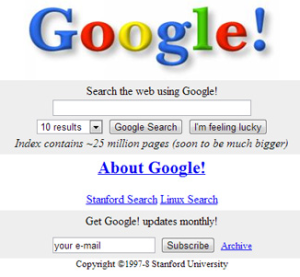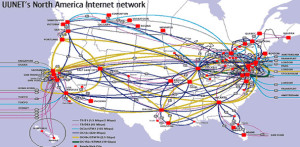Google has maintained its austere minimalism, mostly unchanged since 1997, because, as I have said before, speed is king. Google’s like Meb Keflezighi: built for speed. Like Meb, Google prefers to do his daily training runs with the like-paced. Since there are no famous relay racers, let’s just say that Google wants to pass off every search baton to the fastest site available. You need to be that runner, you need to make sure your site is spry, fleet-footed! Meb! not Jeb!

So, while you might very well be obsessed with duplicate pages, many sites on a single IP, and localization, if your sites aren’t wicked fast, wicked quick, and wicked durable (don’t crash!), then you’re rearranging the deckchairs on the Titanic — you’re putting your time, attention, and resources into the wrong thing, mate. What you should be doing instead of plucking your eyebrows, moisturizing your skin, and doing your hair, you should drop a hundred pounds and get prepared for the hand-off.
So, that’s where the Content Delivery Network (CDN) comes in. According to Incapsula, websites that their CDN have a 50% faster load rate and consume roughly 40-70% less bandwidth. This is possible thanks to dynamic profiling, traffic analysis and maximizing cachable content. According to Wikipedia, “the goal of a CDN is to serve content to end-users with high availability and high performance,” which can automatically take most of the load off of your home server, your home host.
 As long as you’re doing your job and making sure you’ve properly set up your WordPress, Drupal, or whatever install, have only installed and activated the plugins that are essential, and make sure your site is only semi-dynamic, then retaining and implementing a CDN service will do the equivalent of being a digital fulfillment house.
As long as you’re doing your job and making sure you’ve properly set up your WordPress, Drupal, or whatever install, have only installed and activated the plugins that are essential, and make sure your site is only semi-dynamic, then retaining and implementing a CDN service will do the equivalent of being a digital fulfillment house.
So, instead of a visitor requesting your website, sitting on a server in California, from their browser in London, needing to wait for that data to ping from MAE-West to MAE-East, across the Apollo North OALC-4 SPDA undersea cable, and then to West End, an exact cached copy of your entire site could be sitting in Telehouse West, London, just miles and miliseconds away from where that search originated. Brilliant!
The latency of such a journey could be too frustrating for not only the Brit but also for Google, were said Brit searching for a product or service like yours, if your site’s not taking the hand-off as fast and as locally as the other competitors for those keywords and search strings, then you’ll lose. You’ll lose by not being number one, you might even fail by not coming in in the top-5.
And, you really need to be number one; and, you really need to be in the top-five. And you need to stop rearranging all those deckchairs when you really need to get to the helm and steer the ship! Go git ’em, Tiger







